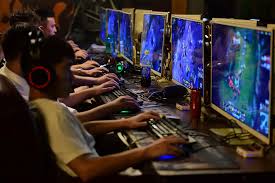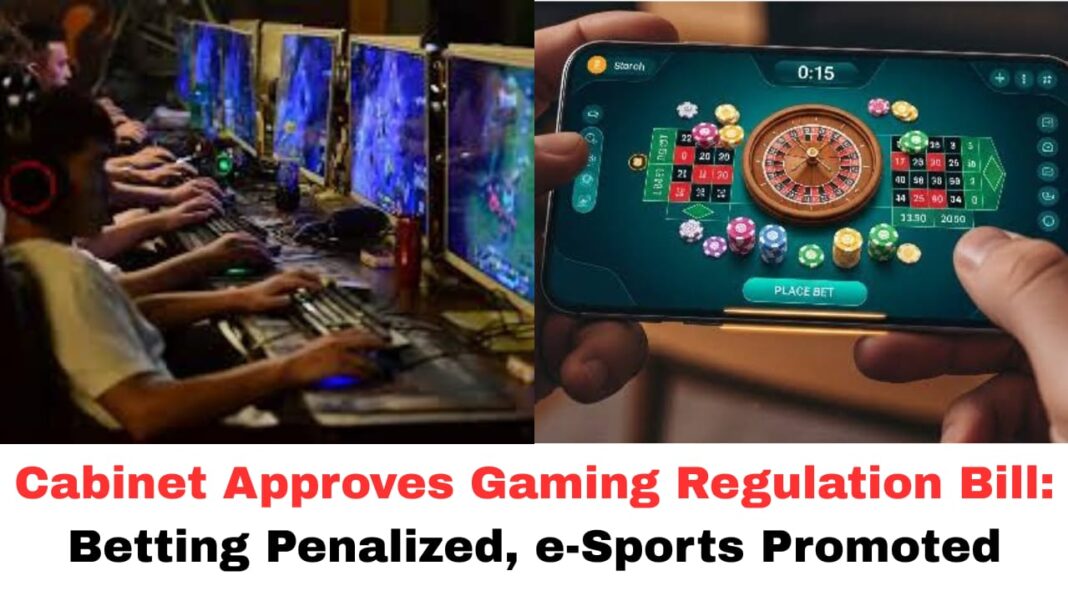Digital News Guru National Desk:
Cabinet Clears Online Gaming Reform – Crackdown on Betting Apps Begins
The Union Cabinet, under the leadership of Prime Minister Narendra Modi, passed a landmark legislation that could redefine the digital gaming landscape in India. The Promotion and Regulation of Online Gaming Bill, 2025 charts a new regulatory course—banning real-money online gaming while promoting e-sports and social games, aiming to curb addiction and financial risks, and bringing coherence to a fragmented legal environment.
India’s Online Gaming Bill Bans Money-Based Games
At the heart of the legislation lies a decisive prohibition on real-money gaming (RMG) platforms—those that require users to stake money for potential monetary gains. The law extends to anyone who “offers, aids, abets, induces or otherwise engages in” such games, making such activities punishable under criminal law. Guilty operators or users could face up to three years in prison and fines—measures intended to safeguard vulnerable gamers from manipulative and addictive app designs.

The urgency to act stems from mounting evidence of the social and psychological harm posed by RMG. The sector, valued by some projections at over $3.6 billion by 2029, has been traced to aggressive marketing, celebrity endorsements, and addictive interface designs.
Separating Play from Profit
The bill distinctly separates e-sports and social games—entertainment or skill-driven experiences—from money-based gaming. By doing so, it preserves a legal avenue for competitive gaming to flourish without the stigma or regulation associated with betting.
The government even plans to institutionalize this through a National e-Sports Authority—a regulator tasked with setting standards, overseeing fair play, and promoting organized growth in the e-sports arena.
From Ads to Accounts: Clamping Down on Access
The bill proposes a blanket ban on promotions and advertisements for real-money gaming platforms, especially targeting celebrity and influencer endorsements. Violators could face penalties up to two years imprisonment and Rs 50 lakh in fines.
It also imposes a ban on financial institutions facilitating transactions for RMG platforms, effectively cutting off funding pathways.
Legal Authority & Enforcement Powers
The Ministry of Electronics and Information Technology (MeitY) is poised to emerge as the central regulatory authority under the new framework, empowered to register legitimate games, investigate violations, and enforce blockades on illegal platforms through IT laws like Section 69A.
The bill also addresses a long-standing challenge—inconsistent state-level regulations—by instituting a uniform nationwide legal standard for online gaming.

Industry Pushback and Economic Concerns
Predictably, the RMG industry has flagged serious concerns. Key platforms—Dream11, MPL, and others—warn that the new law could “severely impact” domestic RMG, potentially driving users offshore. Fear of lost innovation, jobs, and over Rs 20,000 crore in tax revenue looms large.
Between 2022 and early 2025, India already blocked more than 1,400 websites and apps related to unauthorized betting, and imposed 28% GST on gaming and 30% tax on user winnings—tough compliance steps earlier launched by the government.
Markets React—and Rally
In line with this shift in policy, betting-linked gaming stocks rallied. Delta Corp surged nearly 8%, OnMobile Global rose around 4%, and Nazara Technologies saw modest gains—suggesting investor confidence that regulation brings clarity.
Balancing Act: Protection Meets Opportunity
By clearly banning RMG while uplifting e-sports, the bill sends a strong message: gaming can be a safe, structured, and economically beneficial medium—but not at the cost of social welfare.
India’s official recognition of e-sports opens doors for policy integration with national sports, education, and entrepreneurship initiatives. With its deepening digital infrastructure and rising youth engagement, India has the potential to become a global hub for e-sports—so long as regulation fosters growth without compromising protection.

Summary Table
| Feature | Details |
| Banned Activities | Real-money gaming; promotions and financial facilitation |
| Legal Penalties | Operators/users: up to 3 years + Rs 1 crore Advertisers (incl. celebs): up to 2 years + Rs 50 lakh |
| Regulator | MeitY + proposed National e-Sports Authority |
| Gaming Permitted | e-sports and non-monetary social games |
| Enforcement Tools | Blocking via IT Act, sanction of ads, financial transaction ban |
| Industry Concerns | Job losses, investment flight, offshore activity increase |
| Market Sentiment | Gaming stocks rallied post-announcement |
In sum, India’s Online Gaming Regulation Bill aims to turn the page from unregulated betting to a well-defined, socially responsible digital gaming ecosystem—where protection, clarity, and opportunity intersect. Let me know if you’d like a deep dive on state reactions, revenue modeling, or international comparisons!
You May Also Read: Supreme Court Orders SIT Probe into Vantara Over Alleged Animal Mistreatment








